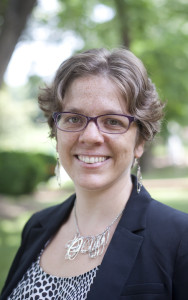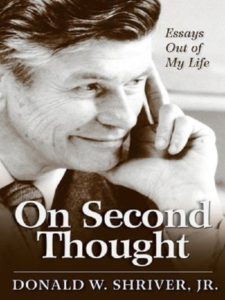 Dissertation Entitled Beloved Community in Multicultural Contexts: The Lived Theology of Pastor Miguel Balderas
Dissertation Entitled Beloved Community in Multicultural Contexts: The Lived Theology of Pastor Miguel Balderas
On April 18th, PLT alum Kelly West Figueroa-Ray successfully defended her dissertation entitled Beloved Community in Multicultural Contexts: The Lived Theology of Pastor Miguel Balderas. This study is a hermeneutical ethnography that situates Pastor Miguel’s approach to multicultural ministry within the lived theological tradition of Beloved Community. This research combines ethnographic methods with a set of hermeneutical tools, traditionally used to analyze ancient scriptural commentary, to examine enacted theological expression, specifically preaching, liturgical choices, and leadership models.
When reflecting on the most important insight from this study, Kelly states:
“By imposing upon his congregation the scriptural values and characteristics of the Kingdom of God in light of the Pentecost experience of Acts 2, Pastor Miguel’s lived theology can be described as the insurgent multiculturalism of Beloved Community. Unlike other multicultural approaches within mainline Christian churches that encourage assimilation to the majority-white culture, Pastor Miguel’s approach encourages his congregants to move towards a congregation in which: 1) the leadership works as a team and reflects the diversity of the community’s demographic and 2) “se come la comida de todos” (everyone eats the food of everyone). This is not an International Day form of sharing, but rather a practice that becomes part of the fabric of community life. Through this organic approach to multicultural training, Pastor Miguel’s hope is that the long-term, majority-white, and English-speaking members could lead their congregation alongside non-English-speaking immigrants, with every person functioning as a full participant in the leadership process.”
This research contributes to the growing body of literature on multiracial congregations by offering a unique ethnographic perspective missing from the scholarship—an in-depth examination of a non-multicultural congregation’s approach to developing multicultural ministries. Hermeneutical ethnography as it is applied in this study also offers a new method for Christian ethnographers, anthropologists, and other scholars interested in how scripture and Christian tradition function in contemporary religious communities, a method that takes seriously the role of texts within the process of lived theological expression.
Kelly graduated last week and has also accepted a one-year faculty position at St. Olaf College in Northfield, Minnesota. She looks forward to offering courses that will explore contemporary scriptural hermeneutics and the lived theology of faith practitioners and Christian communities.
Fellow travelers are scholars, activists, and practitioners that embody the ideals and commitments of the Project on Lived Theology. We admire their work and are grateful to be walking alongside them in the development and dissemination of Lived Theology.

 Celebrating Koinonia Farm’s 75th Birthday
Celebrating Koinonia Farm’s 75th Birthday